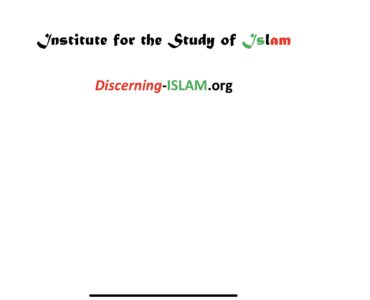
The Sunnah
Since pre-Islamic times, the Arabic word sunnah has referred to a body of established customs and beliefs that make up a tradition. In Muslim legal and religious thought, the term became associated more specifically with the actions and sayings of the Prophet Muhammad. Inspired by God to act wisely and in accordance with his will, Muhammad provided an example that complements God’s revelation as expressed in the Qur’an. His actions and sayings became a model for Muslim conduct as well as a primary source of Islamic law.
Because early Muslim teachings were transmitted orally, some disagreement arose about the basis of the sunnah. Scholars studied the various hadith, reports of the words and deeds of Muhammad, to develop a comprehensive, authentic source. The competing explanations and definitions of the sunnah reflected the intellectual and ideological diversity of the early Muslim community. The concept of the sunnah, however, always remained important to the quest for meaning and certainty in Islamic practice and doctrine.
The expansion of Muslim territory and the existence of local tradition in the newlands created a need for a framework to deal with emerging legal and administrative conflicts. In this environment, Muslim scholars worked to put together the various interpretations of the sunnah. In the 800s, Sunni jurist Muhammad al-Shafi’i ( 767 – 820 ) sought_ to establish a strict definition of the term. He believed that the sunnah complemented the Qur’an by illustrating the principles of the sacred text, and he wanted to use it as an additional basis for Islamic law. He insisted that scholars study the hadith very closely to document the authoritative sunnah.
Al-Shafi’i’s definition of the sunnah created a formal, rigorous, and text-based framework for Muslim jurisprudence and legal practice. Sunni Muslims eventually accepted the notion that the sunnah of the Prophet was best preserved through this type of framework. Shi’i Muslims, however, continued to believe that the ideals of the Prophet could best be realized by following the teachings of the divinely guided imams, who interpreted the sunnah.
In Sufi writings, which reflect an emphasis on the mystical dimensions of Muslim thought and practice, the sunnah includes the Prophet’s spiritual values. Sufis believe that Muhammad transmitted these values through a series of Sufi teachers. For Sufis, the sunnah provides a concrete example of how Muslims might imitate the Prophet’s behavior regarding prayer and following the path toward spiritual perfection.
Since the late 1700s, when Islamic societies began to have more interaction with European powers, the nature and authority of the sunnah have come under scrutiny. New codes of behavior based on European models emerged, particularly in the areas of law, public administration, and government. Muslim reformers sought to halt this trend. Egyptian scholar Muhammad Abduh ( 1849 – 1905 ), for example, argued that Islam could be reconciled with progress and a scientific worldview. He advocated ijtihad (independent reasoning) and criticized taqlid, or unquestioned acceptance of tradition. Abduh did not reject the sunnah. Instead, he emphasized the difference between essential and nonessential traditions and urged Muslims to apply reason to the primary sources of Islam.
Traditionalist thinkers, by contrast, regarded the sunnah as unchanging and therefore not subject to human interpretation. Others have argued that the concept of sunnah remains valid because it serves as a tool to bring about change that benefits society.
In the later part of the 1900s, debate about the role of the sunnah took on greater significance as many Muslim countries attempted to incorporate Islamic tradition into their legal systems. This has been the case in Egypt, Iran, Libya, Pakistan, Saudi Arabia, Sudan, and elsewhere. As in the past, however, the importance of the sunnah as a source of guidance for believers transcends its public uses. The sunnah continues to influence Muslim identity and to enhance the moral lives of believers throughout the Islamic community.
The Arabic term sunnah since pre-Islamic times has signified established custom, precedent, the conduct of life, and cumulative tradition. In a general sense, such tradition encompasses knowledge and practices believed to have been passed down from previous generations and representing an authoritative, valued, and continuing corpus of beliefs and ‘customs. In the context of early Muslim juridical and theological development, the wlord sunnah came to connote a more specific notion: that the actions and sayings of the prophet Muḥammad complemented the divinely revealed message of the Qurʿān and embodied a paradigm and a model, constituting a source for establishing norms for Muslim conduct.
In the Qurʿān the term sunnah occurs in several contexts. It is used with reference to the established practice of earlier peoples and of the Arabs (8.38); it is also associated with previous messengers of God and more specifically identified as the sunnah of God, characterized as continuous and unchanging (17:76–77, 33:62, 48:22–23). It is this latter emphasis, grounded in a notion of continuous revelation, that is used in the Qurʿān to challenge the idea of an outmoded or collective sense of tradition, valued simply because of its ancestral or local roots. The sunnah of God had primacy over other versions because it was being revealed through Muḥammad, who was to be obeyed as the recipient, mediator, and exemplar of this version of the authentic tradition.Early Muslim scholars further developed and elaborated the concept of the sunnat al-nabī in their search to recapture as complete a picture of the Prophet’s exemplary life as they could authenticate on the basis of the ḥadīth, accounts of his words and deeds transmitted by his companions and others from the first generation of Muslims. This quest to memorialize the life of the Prophet and ground it in a historically verifiable process also led to a type of literary reconstruction of the narrative of the Prophet’s life called sīrah. All these forms of enactment acted as reference points that would subsequently inform and inspire various Muslim communities of interpretation as they sought to ground their own juridical, doctrinal, and historical identities in what they perceived to be the normative sunn.
In this earlier period of Muslim history and thought, the oral nature of the transmission of ḥadīth, as well as attempts to document it through isnād (a chain of transmitters), gave rise to several competing versions of the elements that constituted the valid sunnah. The methodology and dialectical mode of argument that shaped the debates and discussion, however, provided a common frame of reference that looked to the Prophet’s example to substantiate a given point of view. Thus the whole process by which thinkers arrived at various forms of understanding and definition of the sunnah must be seen as a dynamic one. It mirrored the diversity prevalent in the intellectual life of the early Muslim community. The concept of the sunnah, however, always retained its overarching importance in shaping Muslim religious discourse, providing a wider field of discussion in which the Qurʿān and the Prophet’s paradigmatic behavior were always central to the quest for meaning and certainty in practice and doctrine.
Modern academic studies of the development of Muslim law and jurisprudence have come to focus on how the concept of the sunnah of the Prophet originated and became normative. One of the central theses, emerging from the work of earlier scholars such as Goldziher and Schacht, maintained that the sources of juristic development lay in the practices of the early Muslim community, several generations after the death of the Prophet.
This living tradition, the accepted practice of these communities, was systematized by the discursive and consensual experience of Muslim scholars who gave intellectual leadership to a number of such local communities in the expanding Muslim world. The idea of the sunnah of the Prophet, particularly in Schacht’s view, was developed by such Muslim scholars, who in their quest to justify and authenticate existing practices equated the living tradition with the supposed practice of the Prophet and his companions. This theory questions the assumption of the Muslim scholarly tradition that there was a direct and valid link between existing practice and the words and practices of the Prophet. In fact, Schacht argued, much of the ḥadīth tradition related to jurisprudence was invented, and the sunnah of the Prophet was a concept retrospectively imposed on an older idea of sunnah.
This thesis has been widely contested by later Western and Muslim scholars alike on methodological and textual grounds. Although details regarding the crystallization of the concept of the sunnah and the reliability of elements of the ḥadīth are still in dispute, consensus has emerged in current scholarship that an emphasis on the merely positivistic aspects of the origin of the ḥadīth unduly reduces the concept of the sunnah to a formal and legal construct and severely limits its wider meaning in Muslim thought and practice.Recent scholars, building on epistemological and hermeneutical stances prevalent in current comparative studies, have attempted to widen the basis for studying sunnah. They tend to emphasize questions of how oral traditions and written texts are produced, transmitted, and interpreted, and they have further attempted to relate these interpretations to specific communities of scholars, social boundaries, and political contexts. In this wider view the sunnah appears as a multivalent concept, illustrating how different kinds of Muslim orientations and institutions have found literary formulation, expression, and codification in law, ethics, theology, and mysticism. The sunnah serves as a common template for all these Muslim groups and individuals, permitting them to represent a connection with the beginnings of Islam and acting as a common referent in the religious discourse of community formation and identity.
Role and Function in Islamic Thought and Practice
The formative period of Muslim legal thought and practice is marked by pluralism, reflected in the different schools and communities of legal interpretation. The earliest texts that survive from this period also suggest that the development of a discursive and hermeneutic style embraced debate and reflected divergence. However, the expansion of Muslim territory and administrative control, the presence of local tradition and practice in these areas, and the need to create an integrated framework for dealing with emerging legal and administrative problems provided a context for Muslim rulers and scholars to reconcile and synthesize this diversity. One such synthesis, developed in the second century of Islam by al-Shāfiʿī, reflects the formal incorporation of sunnahas a primary source within a coherent theory of jurisprudence. Dealing with the uṣūl al-fiqh, the foundations of jurisprudence, al-Shāfiʿī argued for a much stricter definition of sunnah in order to establish legislative authority. He regarded it as a source as binding as the Qurʿān, with the status of indirect revelation—because obedience to the Prophet had been decreed by God. The sunnahcomplemented and stood alongside the Qurʿān, giving precision to its precepts. Its definition thus required greater scrutiny and documentation. Al-Shāfiʿī’s insistence on this principle led to a sharp distinction between the authoritative sunnah that was scrupulously documented on the basis of proper isnād (transmission) and less authoritative versions of the sunnah that could not be traced back through a reliable textual link to the Prophet.
In terms of its impact on Muslim jurisprudence and legal practice, al-Shāfiʿī’s definition of the sunnah—with its relation to the Qurʿān and to other derivative sources such as qiyās (analogical reasoning) and ijmāʿ (consensus)—created a more formal, rigorous, and arguably more coherent and textually grounded framework. This is not to suggest that previous or contemporaneous Muslim scholars and the legal schools associated with them gave no importance to the overriding role of the Qurʿān and sunnah. They are equally emphasized in the traditions traced back to Abū Ḥanīfah (702–767), Mālik ibn Anas (715–795), and Aḥmad ibn Ḥanbal (780–855), who together with al-Shāfiʿī are regarded as the founders of the four established Sunnī schools of law (madhhābs). Al-Shāfiʿī’s critique did, however, indicate differences pertaining to the question of the authority of individual ḥadīth and to issues of the appropriate textual basis and documentation of the sunnah in deriving legal rules. The four major Sunnī schools in time agreed in insisting that the sunnah of the Prophet was best preserved through a legal methodology based on uṣūl al-fiqh and sustained in the custody of learned scholars and jurists.
According to the other major branch of Islam, Shiism, the ideals embodied in the Prophet’s life could best be implemented through loyalty, devotion, and obedience to the divinely guided and properly designated imams, descended from the Prophet through his son-in-law ʿAlī and his daughter Fāṭimah. The imams taught, confirmed, and further interpreted the Qurʿān and sunnah. Their authoritative role ensured consistency and continuity, and their guidance and teaching were regarded as congruent and coextensive with the sunnah of the Prophet. These commonly held beliefs, however, were developed and implemented differently among the Shīʿī groups that emerged subsequently, such as the Ithnā ʿAsharī, Ismāʿīlī, and Zaydī sects.
In addition to its significance in legal and theological writings, the sunnah also provided a means for a broader interpretation of the teaching and life of the prophet in the philosophical and spiritual sense. For early Muslim philosophers like al-Kindī (d. 870), al-Fārābī (d. 950), and Ibn Sīnā (d. 1037), the sunnah had profound philosophical implications. Prophecy represented the most perfect activity of which the human representative faculty was capable. The Prophet’s soul was purified and inspired and was not in need of philosophical training. As the perfect ruler, the Prophet was also a law-giver and the head of a polity, whose goal it was to enable those living in that society to attain happiness in this world and hereafter.
The sunnah embraced the practical workings of society as set out by an authoritative legal system, but it also offered the possibility of disciplined intellectual inquiry. Intellectual and theoretical contemplation were to be regarded as an integral part of prophecy. A very similar philosophical conception of sunnah is evident among the esoteric schools of Shiism, for whom the sunnah encompassed the exoteric as well as esoteric pattern reflected in the teachings of the Prophet and imams. This teaching made possible a fuller unfolding of the rational capacity, permitting an integrated understanding of the totality of knowledge in Islam.
In Ṣūfī writings, which reflect an emphasis on the mystical dimension of Muslim:ł thought and practice, the sunnah includes the Prophet’s spirituality and the presence in his life of values such as self-transcendence and the act of personal remembrance of God in the heart,. These values and their practice were believed to have been taught by the Prophet and transmitted through an unbroken chain (silsilah) of Ṣūfī teachers. Such a spiritual paradigm provided a concrete example of how Muslims might emulate the Prophet’s night vigils and be inspired to embark upon the path of spiritual self-perfection that had led the Prophet to the divine presence (Qurʿān, 17:1). Among the Ṣūfīs, the ḥadīth or qudsī, narratives of the Prophet containing divine sayings, had special significance in highlighting the mystical dimension of the sunnah and its role in promoting piety, devotion, and spiritual understanding.
Changing Interpretations
The dynamics of Muslim history since the late eighteenth century, including an extended period of interaction, influence, and colonization by European powers, have created dramatically different conditions for the maintenance of inherited Muslim institutions and ideals. In many societies the authoritative role and shared sense of significance associated with the concept of the sunnah, and the legal and ethical behavior and norms inspired by it, were curtailed or marginalized. New codes appropriated from European models and systems assumed a more prominent role, particularly in the areas of law, public administration, and governance.
This pattern of erosion was challenged by several Muslim intellectual reformers across the Muslim world. Muḥammad ʿAbduh (1849–1905), for instance, in his role as teacher at al-Azhar and muftī of Egypt, challenged the view that Islam could not be reconciled with progress and a scientific worldview. He argued for the renewal of ijtihād (independent interpretation) and criticized taqlīd(unthinking acceptance of received tradition). He distinguished between essentials and nonessentials in the body of law and belief and urged Muslims to apply reason to the primary sources of Islam. Such a view influenced scholars in other parts of the Muslim world who were led to develop ideas that related the sources of Islam to changes in society and a newly emerging spirit of nationalism.
Among those whose views have been labeled literalist or fundamentalist, the normative character of the sunnah and its authority were regarded as unchanging and not subject to the vicissitudes of human thought or manipulation. It could only be mediated through the existing system of traditional juristic practice. Others, while according the sources primacy, contended that the vitality of the concept of sunnah was reflected in the historical role it had played as a tool in effecting change for the general benefit of society. Its role was not simply restrictive, but rather enabling.
In the later part of the twentieth century this issue has taken on greater significance because many Muslim countries, as part of policies aimed at Islamization, wish to recover and define a role for tradition in sanctioning their codified legal systems. Such has been the case in Egypt, Iran, Libya, Pakistan, Saudi Arabia, Sudan, and the United Arab Emirates, among others. There is in all these instances an increasing recognition of the historical diversity that has existed and the need to reconcile the many strands of influence that have constituted past practice and inherited custom, within the paradigm of the sunnah. As in the past, the narrative force of the sunnah continues to transcend the public and rhetorical uses to which it may be put, fostering self-identity and enhancing the private moral lives of Muslims wherever they live.
The Sunmah
621 – 007d
https://discerning-Islam.org
Last Update: 04/2021
Copyright © 2017-2021 Institute for the Study of Islam (ISI) | Institute-for-the-study-of-Islam-org | Discerning Islam | Discerning-Islam.org | Commentaries on Islam | © 2020 Tips Of The Iceberg | © 1978 marketplace-values.org | Values In The Marketplace | are considered “Trade Marks and Trade Names” ®️ by the Colorado Secretary of State. All Rights Reserved.



